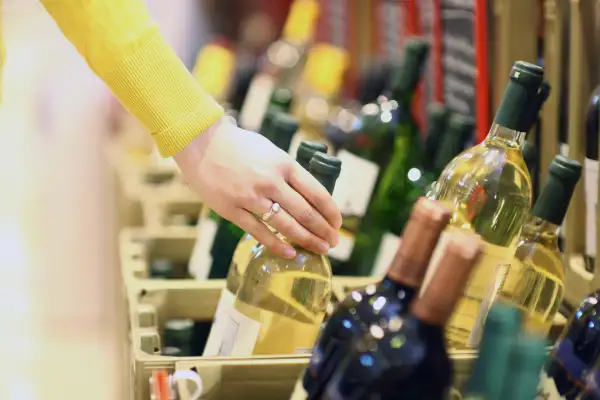Why It's O.K. To Ignore Wine Scores When Shopping for Wine

As someone who is 1) in lack of a discerning palate and 2) highly indecisive, I choose my wine like an idiot. Which is to say that I choose my wine like many other people do. I look at the wines in my price range, and then simply pick the name or label that strikes me as most promising.
But it turns out my "method" may not be much more arbitrary than choosing a bottle based on its wine score—a metric often used to discern between higher-end wines, and that, when high, tends to be matched by high prices. Raves from critics might not mean you'll like a certain wine either.
Why? Well, as a recent Wall Street Journal column puts it, "A wine’s taste and character changes almost daily, and whatever any critic says, taste is subjective." Context, for example, is hugely important. A glass of wine after a long day of work or, better yet, while watching a sunset from a weekend beach rental, is inevitably going to taste better than the one you have across from that relative with whom you really didn't want to have dinner.
What's more, each of the different wine scoring systems is subjective, simplistic, and flawed. The seemingly scientific number-based ratings incorporate factors the individual might not care about (such as color), and the average consumer is puzzled about what, exactly, is being rated. In fact, the growing consensus is that wine scores, while likely to stay a part of the industry, are on their way out as a trusted criteria for consumers.
As for critics, previous studies have shown they fail to rate the same wines consistently when faced with the same blind test more than once. Industry awards for "best" wines seem to be doled out quite randomly as well. And whereas a higher professional wine score tends to come with a higher price tag, the correlation between price and the wine scores given by lay wine tasters in blind tests is often negligible, or even slightly negative. In other words, the average drinker won't think that a high-priced wine is worth the money.
Since it's problematic to rely on wine scores and critic reviews and ratings, what's the wine picking way of the future? Wine drinkers might increasingly look to recommendations from the "social sommelier," and, especially as winemakers look to draw in younger, quirkier crowds, personal taste.
It could be wise to find specific critics with whose taste you agree. Ask your friends for recommendations. Try bottles you haven't tried before. And don't feel the need to totally blow your budget to get your hands on a high-quality bottle. There are (from what I've been told), some smashingly good options even just in the $10 to $20 range.